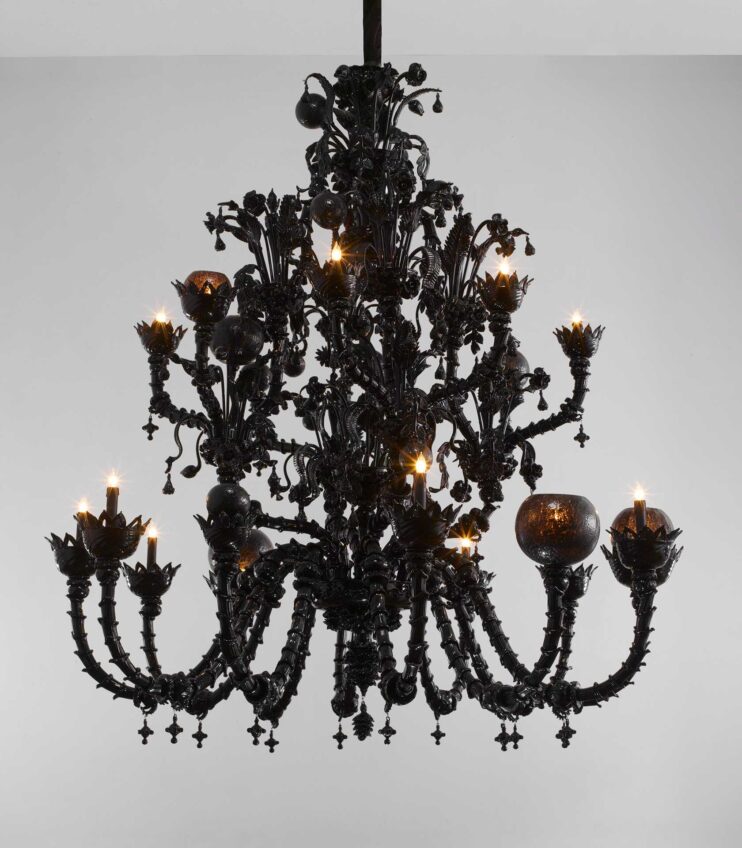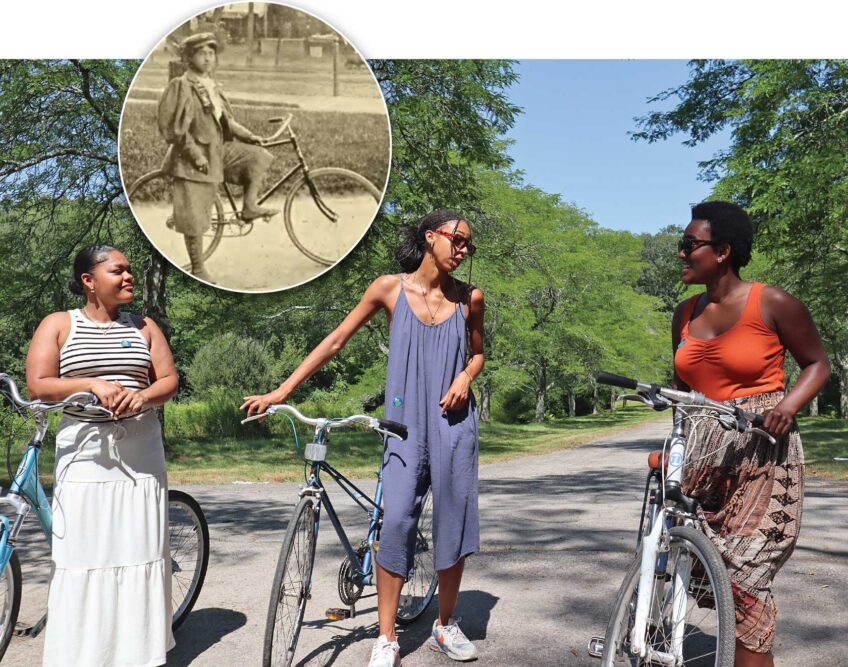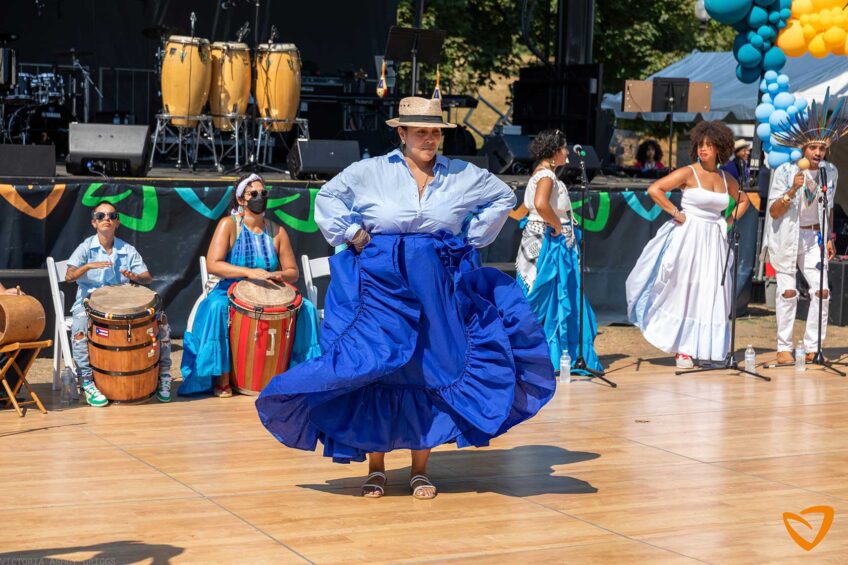MAAH Stone Book Award honors three authors of African American histories
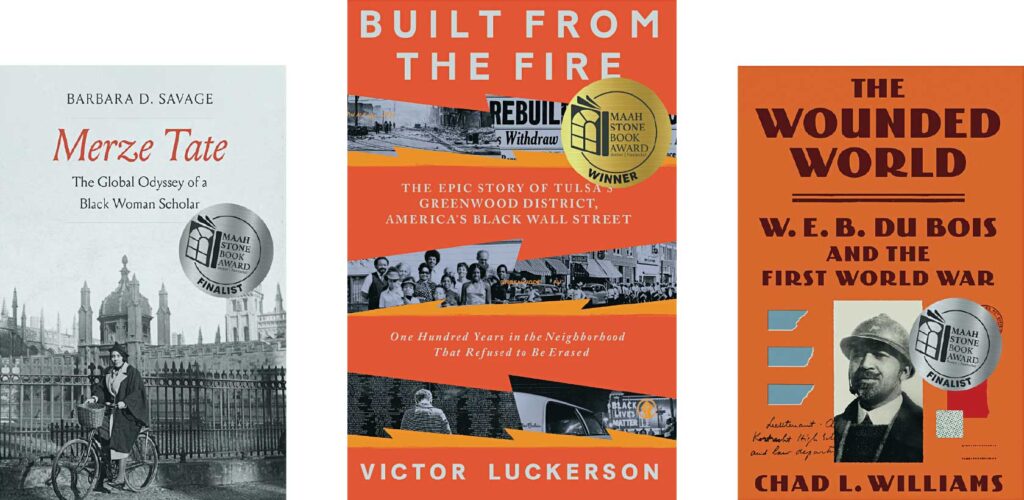
Three books — a chronicle of Black Wall Street and biographies of W.E.B Du Bois and scholar Merze Tate — are the recipients of this year’s MAAH Stone Book Award, a collaboration between the Museum of African American History and the James M. and Cathleen D. Stone Foundation that recognizes scholars whose work explores facets of African American history across the country.
Last week, the authors of the books were honored at a ceremony at the African Meeting House, a key locale in Boston’s African American history, during a gathering that included an appearance by GBH’s Callie Crossley.
Sonja Plesset, executive director of the Stone Foundation, said, “There’s so many writers who are doing this work; there are few, if any, national book awards that recognize work in this area. And so by lifting up those authors and their work, we are saying that African American history is a critical part of our nation’s history, and we all should know it and celebrate it.”
Established in 2017 in partnership with Cathleen D. Stone, a longtime MAAH board member, the award was meant to boost the museum’s notoriety by highlighting its work of drawing attention to Boston’s rich African American history.
Noelle Trent, president and CEO of the museum, said the award aligns with the museum’s mission of interpreting and shining a light on the Black experience in Massachusetts and New England more broadly.
The award recognizes “outstanding scholarship about the Black experience in America,” she said, scholarship that examines Black history through a new lens and “forces us to reconsider some notions or exposes us to new ideas, and that’s what we’re really about.”
Since the award’s creation, publishing companies have submitted over 500 books for consideration for the award, which now comes with a $50,000 prize for the first-place winner and $10,000 each for the two runners-up.
This year, the museum received a whopping 118 book submissions, from which a jury — made up of five professors from institutions across the country — created a short list of 14 before finally selecting its top three.
Journalist and author Victor Luckerson’s first book, “Built From the Fire: The Epic Story of Tulsa’s Greenwood District, America’s Black Wall Street,” earned him a spot among the New York Times’ top 100 books of 2023 and first prize for the MAAH Stone Book Award. The work builds on Luckerson’s writings from his time as a staff writer at The Ringer to “illustrate the brutality of the race massacre and lingering traumas from it” and the “ingenuity, agency and joy of a lot of Black folks who live in Greenwood across generations,” he said.
The two runners-up are Chad L. Williams’ “The Wounded World: W.E.B. Du Bois and the First World War” about the circumstances around Du Bois’ failed attempt at writing a comprehensive history of Black involvement in World War I, and Barbara D. Savage’s “Merze Tate: The Global Odyssey of a Black Woman Scholar,” born of a decade’s worth of research about Tate’s life and travels.
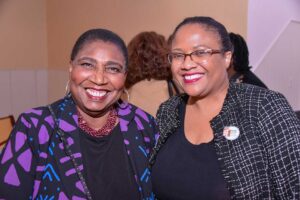
Journalist Callie Crossley (left) and MAAH President and CEO Noelle Trent at last year’s Stone Book Award ceremony. PHOTO: CRAIG BAILEY/PERSPECTIVE PHOTO
While last week’s ceremony honored this year’s three winners, Pamela D. Waterman, director of the MAAH Stone Book Award, said every submission deserves recognition.
“Part of our goal is not just celebrating the winner and the two finalists,” she said, adding that “there may be three winners this year, but there were 115 other remarkable, impressive books that we endeavor to shine a spotlight on as well.”
Waterman said the MAAH Stone Book Award highlights each submission on its social media and website.
This year’s entries included biographies of artists and civil rights icons, stories about Black activism and radicalism, a chronicle of the history of Black Republicans and an exploration of American popular music.
Through deep research, past award winners have woven tales about Black life in America in all its forms. Among the winners are books about emancipation, historically Black colleges and universities, slavery in the New World, modernity from an Afro-centric lens and Black marriages in the 19th century.
“There’s been a lot of efforts to challenge the veracity of Black history … across the country over the last several years, and so that can be really disheartening when you’re a practitioner,” said Luckerson, the winner of this year’s first-place prize. He pointed to anti-DEI initiatives and legislation as examples of this phenomenon.
“So I think that an award like this that says that, ‘No. Actually, Black history is vital…’ is really important,” he said. “I’m glad that despite the political headwinds, there are some people who are saying that Black history is vital.”





